期刊名称:NPJ CLEAN WATER
 期刊简介(About the journal) 期刊简介(About the journal)
 投稿须知(Instructions to Authors) 投稿须知(Instructions to Authors)
 编辑部信息(Editorial Board) 编辑部信息(Editorial Board)
 About the journal About the journal
Aims & Scope
npj Clean Water publishes high-quality papers which report cutting-edge science, technology, application, policy and societal issues that contribute towards a more sustainable supply of clean water. Papers published in the journal may also support and accelerate Sustainable Development Goal 6, 'Clean water and sanitation'.
Representative journal scope:
- drinking water and wastewater treatment by physical, chemical or biological means, including research at the interface of these approaches.
- new materials and process technologies for water and wastewater treatment, including membranes, advanced oxidation, nano-enabled materials and processes.
- desalination of seawater, groundwater and non-traditional wastes like municipal and industrial wastewater for recycling or reuse.
- advances in measurement and detection of regulated water quality parameters, as well as real-time monitoring of pathogens and emerging contaminants.
- software and hardware innovations related to reliable and efficient clean water distribution and supply, including machine learning, Internet of things and big data analyses.
- broader issues related to the supply of clean water beyond natural sciences, including topics such as education, funding, policy, intellectual property and impact on society.
 Instructions to Authors Instructions to Authors
For Authors & Referees
This section will help you when preparing your manuscript for initial submission and resubmission to npj Clean Water. Please ensure that you familiarise yourself with our editorial policies as outlined in our Guide for Authors before submitting your work. An overview of key information on submitting primary research is also available in our brief guide to manuscript submission in PDF format.
For information on our aims and scope, as well as our content types, please refer to the About the journal section.
All manuscripts must be submitted electronically through our online submission system, from which you can upload the cover letter and manuscript files (text, figures and supplementary information, including video) and check on the status of your manuscripts during the review process.
Revised manuscripts should be uploaded through the link provided in the editor's decision letter. Please do not submit revisions as new manuscripts.
The authors must include copies of all related manuscripts with any overlap in authorship that are under consideration or in press elsewhere.
Guide for Authors
View our guide for authors for detailed information on editorial criteria, and how manuscripts are handled by our editors between submission and acceptance for publication.
Manuscripts submitted to npj Clean Water do not need to adhere to our formatting requirements at the point of initial submission; formatting requirements only apply at the time of acceptance.
 Download Guide for Authors Download Guide for Authors
Guide for Reviewers
View our guide for reviewers for detailed information on policies, workflows and criteria.
Journal Policies
Our editorial and publishing policies are consistent with those of the Nature portfolio journals.
Language Editing
Even though no paper will be rejected for poor language, authors occasionally receive feedback from editors and reviewers regarding language and grammar usage in their manuscripts. You may wish to consider asking a colleague to read your manuscript and/or to use a professional editing service such as those provided by our affiliates Nature Research Editing Service or American Journal Experts. Please note that the use of a language editing service is not a requirement for publication in npj Clean Water.
 Editorial Board Editorial Board
Editor-in-Chief
 Eric M. V. Hoek, PhD Eric M. V. Hoek, PhD
Faculty Director, UCLA Sustainable LA Grand Challenge
Founder of Water Planet, Inc
University of California, Los Angeles
CA, USA
Dr. Hoek is currently a Professor in the Department of Civil and Environmental Engineering at UCLA. He was co-founder of the UCLA Water Technology Research Center, UC Center for Environmental Implications of Nanotechnology and the KAUST-Cornell Center for Energy & Sustainability. His UCLA research group explores the union of nanomaterials and membrane technologies for water, energy, biomedical and environmental applications. Dr. Hoek also applies his basic research knowledge to practical applications, having consulted for a range of organizations including companies, governments and research agencies.
Associate Editors
Nina Lansbury, PhD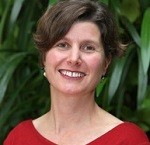
School of Public Health
The University of Queensland
Brisbane, Australia
Dr Nina Lansbury is a researcher on environmental and planetary health within The University of Queensland's School of Public Health. She conducts research and teaching on responses to complex issues around the sustainable and integrated development, including management and use of water and energy resources with social, environmental and economic considerations. Her current research examines the implementation challenges and opportunities for the UN Sustainable Development Goals, sustainable provision and evaluation of water, sanitation and hygiene in development, including in remote Indigenous communities on both mainland Australia and in the Torres Strait.
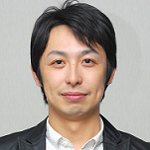 Ryo Honda, PhD Ryo Honda, PhD
Associate Professor, Faculty of Environmental Design
Kanazawa University
Kanazawa, Japan
Professor Ryo Honda obtained his PhD in Environmental Engineering at University of Tokyo in 2005, and then became an Assistant Professor working on interdisciplinary sustainability science, and on an international cooperation project for the development of water reuse technology. He took up his current position in 2012. His areas of interest include environmental process engineering and environmental microbiology, with specialty in microbiology of water treatment and water environment, especially resource recovery from wastewater, microbial community and health-related water microbiology. He is also familiar with wider water-related issues in Asia through his wide experience of field surveys.
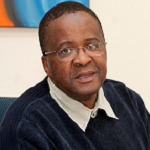
Bhekie B. Mamba, PhD
Director, Nanotechnology and Water Sustainability (NanoWS)
University of South Africa
Johannesburg, South Africa
Professor Bhekie Mamba has occupied a number of leadership positions including being a Professor and Head at Department of Applied Chemistry at the University of Johannesburg, Executive Dean of the Faculty of Science at the University of Johannesburg, Director of the DST/Mintek Nanotechnology Innovation Centre – Water Research Node and the Director of the Institute of Nanotechnology and Water Research at the University of Johannesburg. He has experience in the area of nanotechnology, polymer chemistry and water treatment technologies. His interests focus on creating sustainable solutions that will ensure that water resources are maintained and preserved for future generations.
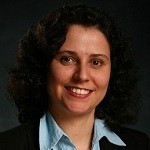 Debora F. Rodrigues, PhD Debora F. Rodrigues, PhD
Department of Civil and Engineering
University of Houston
TX, USA
Professor Debora Rodrigues received her BS and MS degrees in Biology and Microbiology, respectively, from the University of Sao Paulo, Brazil, and her PhD in Microbiology and Molecular Genetics from Michigan State University in 2007. She was a Postdoctoral Associate in the Environmental Engineering Program at Yale University from 2007 to 2010. Her research is divided in three main topics: better understanding of the aquatic system and its ecology; investigation of the effects of nanomaterials on the environment (more specifically, carbon-based nanomaterials) through application of molecular biology and nanotoxicological tools and development of new nanotechonologies and biotechnologies to keep the aquatic system safe and remove unwanted contaminants.
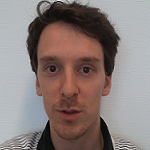
Arne Verliefde, PhD
Department of Applied Analytical and Physical Chemistry
Ghent University
Ghent, Belgium
Professor Arne Verliefde's research focuses on interfacial phenomena in drinking and process water treatment with an emphasis on membranes. His interests also expand to adsorptive and ion exchange processes, and energy-efficient processes for selective separation of organics and inorganics. Applications of his research are primarily within water treatment and water recycling, with three main research pillars: ultrapure water production, fundamental membrane transport and low-tech applications for developing countries. Dr Verliefde is currently involved in the Resource Recovery Technology Consortium and in the Centre for Advanced Process Technology for Urban Resource Recovery, both at Ghent University, which focuses on resource recovery and zero-waste research.
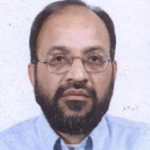
Syed M. Zubair, PhD
Distinguished Professor, Department of Mechanical Engineering
King Fahd University of Petroleum and Minerals
Dhahran, Saudi Arabia
Professor Zubair received his PhD in mechanical engineering from Georgia Institute of Technology. His research interests involve both applied as well as fundamental areas of energy and desalination systems: thermal and membrane-based desalination systems, refrigeration and air-conditioning systems and fouling of heat exchangers. He has participated in several research projects, including projects supported by the MIT-KFUPM Center for Clean Water and Clean Energy.
Editorial Board Members
Diego-César Alarcón-Padilla, CIEMAT-Plataforma Solar de Almería, Spain
Malak Talal Al-Nory, Effat University, Saudi Arabia
Khawla Al-Shayji, Kuwait University, Kuwait
Mohammed A. Antar, King Fahd University of Petroleum & Minerals, Saudi Arabia
Robert Bain — UNICEF, USA
Asit K. Biswas, Lee Kuan Yew School of Public Policy, Singapore & Third World Centre for Water Management, Mexico
Jo Burgess, Water Research Commission, South Africa
Chart Chiemchaisri, Kasetsart University, Thailand
Orlando Coronell, University of North Carolina, USA
Peter Gleick, President-Emeritus of Pacific Institute, & member of US National Academy of Sciences, USA
April Gu, Cornell University, USA
Veera Gnaneswar Gude, Mississippi State University, USA
Claudia K. Gunsch, Duke University, USA
Peiying Hong, King Abdullah University of Science & Technology, Saudi Arabia
Sadahiko Itoh, Kyoto University, Japan
Peter Jarvis, Cranfield University, UK
Hiroyuki Katayama, University of Tokyo, Japan
Mary Jo Kirisits, The University of Texas at Austin, USA
Manish Kumar, Indian Institute of Technology, Gandhinagar, Gujarat, India
Tahar Laoui, King Fahd University of Petroleum & Minerals, Saudi Arabia
Pierre Le-Clech, University of New South Wales, Australia
John H. Lienhard V, Massachusetts Institute of Technology, USA
Wen-Tso Liu, University of Illinois at Urbana-Champaign, USA
Shaily Mahendra, University of California Los Angeles, USA
How Yong Ng, National University of Singapore, Singapore
Kim Choon Ng, King Abdullah University of Science & Technology, Saudi Arabia
Tebello Nyokong, Rhodes University, South Africa
Satoshi Okabe, Hokkaido University, Japan
T. Pradeep — Indian Institute of Technology Madras, India
Rene Rangel-Mendez — Instituto Potosino de Investigación Científica y Tecnológica A.C., Mexico
Daisuke Sano, Tohoku University, Japan
Raman Saravanane, Pondicherry Engineering College, India
Andrea Iris Schäfer, Karlsruhe Institute of Technology, Germany
Chuyang Y. Tang, The University of Hong Kong, Hong Kong
Justice M. Thwala, University of Swaziland, Swaziland
Nathalie Tufenkji, McGill University, Canada
Olli Varis, Aalto University, Finland
Mari-Karoliina Winkler, University of Washington, USA
Guangxue Wu, National University of Ireland, Galway, Ireland
Hiroshi Yamamura, Chuo University, Japan
Linda Zou, Masdar Institute of Science and Technology, UAE
Interested in joining the journal team?
If you are interested in joining the journal as an Editorial Board Member or Associate Editor, please complete this Google form. Associate Editors are part of the editorial team that handle manuscripts, while Editorial Board Members are regular reviewers and are consulted for ad hoc advice. We will contact you if your expertise meets the needs of the journal.
Nature Portfolio journals are committed to promoting practices that support diversity, equity and inclusion in science communication and publishing, and we strongly encourage gender, race, ethnic, geographic, career stage and other diversity in our journal teams. Our in-house staff will use your information only for the purposes of identifying new editorial team or board members. Please contact the journal by email if you would like to remove your information from these records.
Please note that we are not able to respond to all applicants.
|





